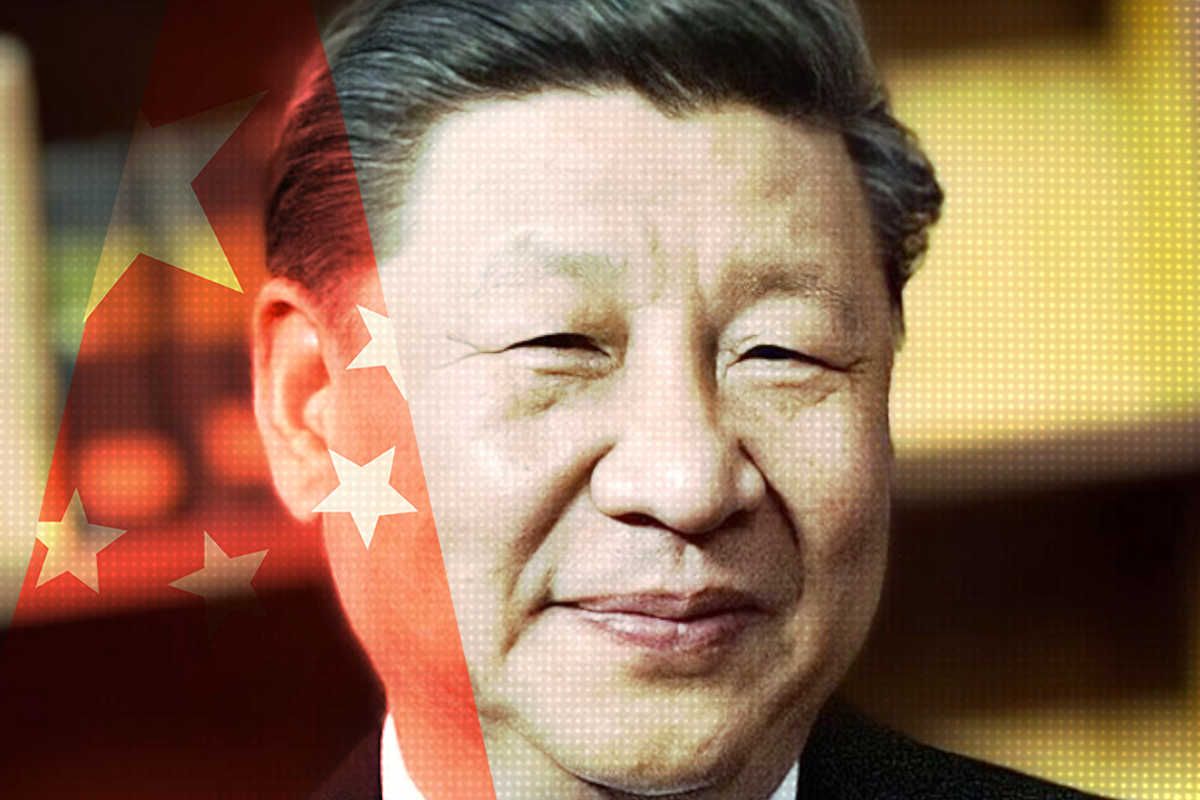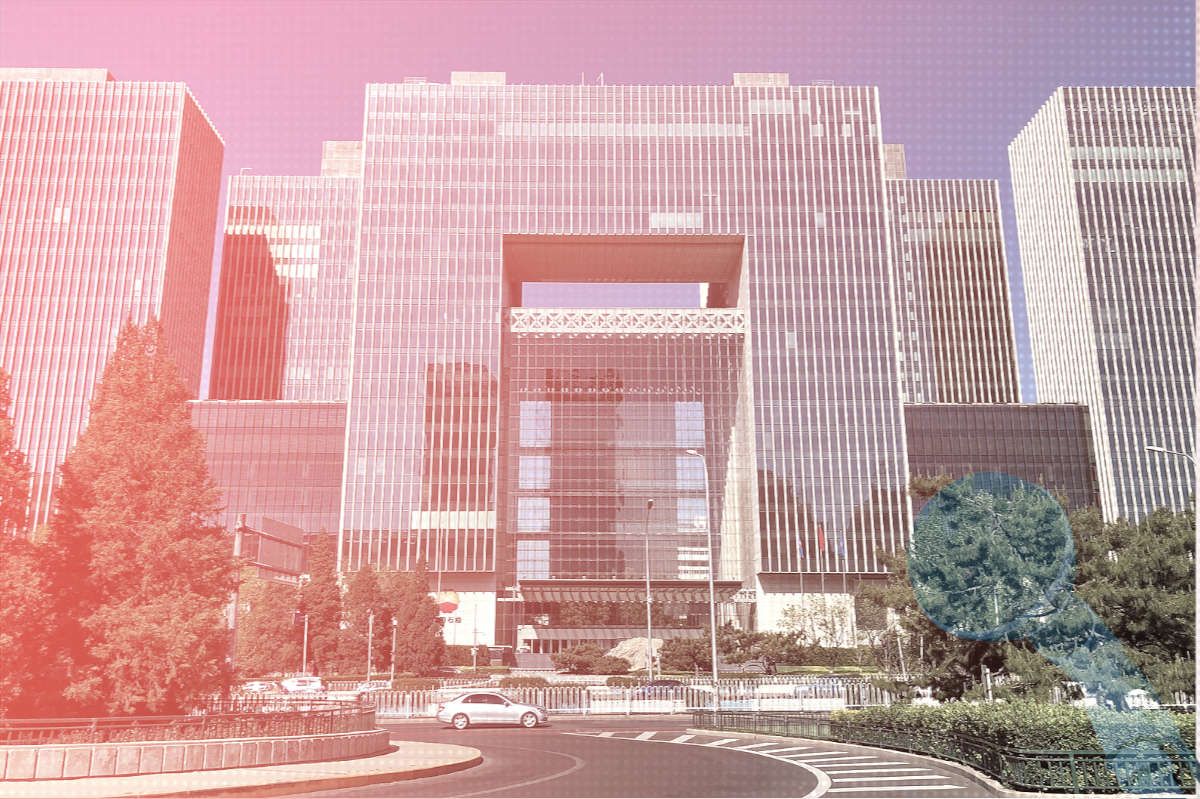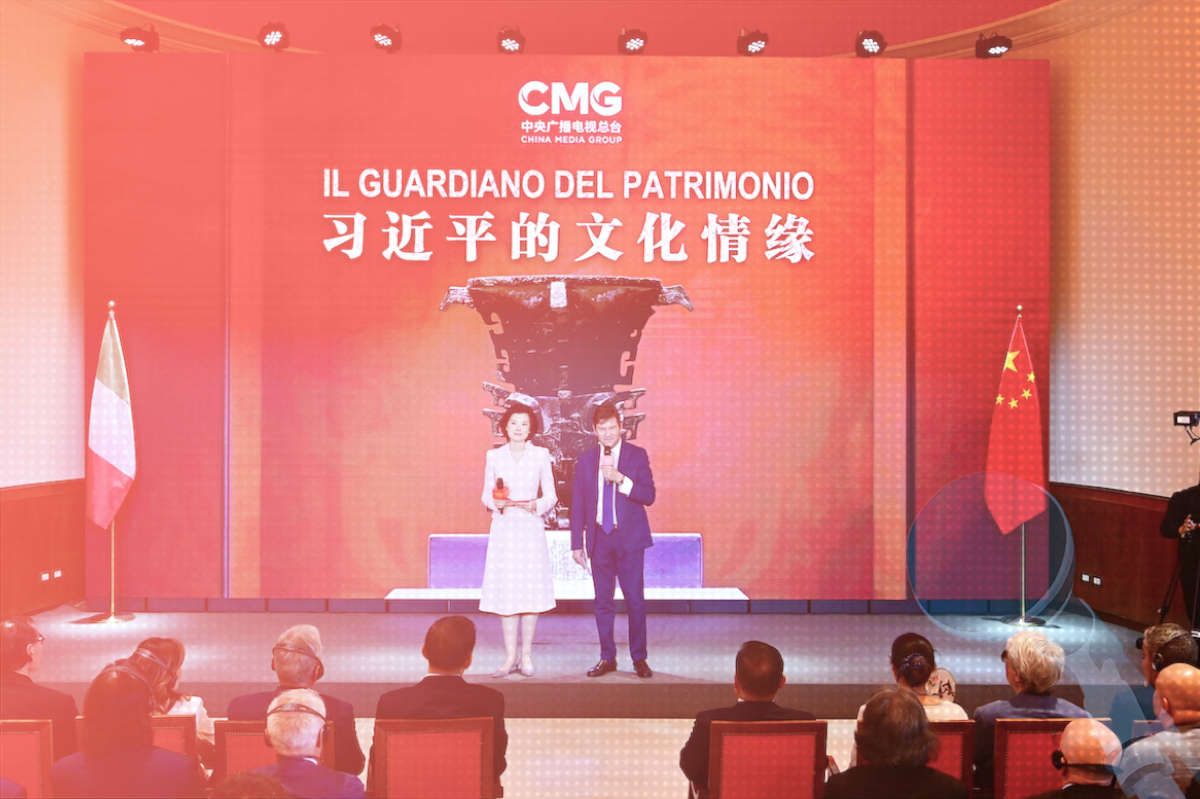Headlines and Hashtags
China sends mixed message as it releases text of new government transparency legislation
As top government leaders released the much-anticipated text today of national legislation offering Chinese citizens better access to information and promising a new era of government transparency, the country’s most elite coterie of party leaders sent a very different message: control of speech on the Internet must be strengthened. Confirmation came, meanwhile, that Liu Binjie (柳斌杰), a close protege of President Hu Jintao, has taken the place of Long Xinmin (龙新民) as head of China’s General Administration of Press and Publications, a move that should solidify the top leader’s grip on news media ahead of the 17th Party Congress this fall. [BELOW: Screenshot of news coverage this morning on Sina.com, with announcement of Web controls and the openness of information ordinance stacked together].

The news items, which appeared together at several major Web portals, re-iterated the deep ambivalence that has marked so-called “media reform” in China since the 1990s, in which the forces of change and control work have worked in seeming dissonance.
The much-awaited text of China’s national ordinance on release of government information (中华人民共和国政府信息公开条例), approved by Premier Wen Jiabao last January, confirmed previous hints as to what its provisions might be. The ordinance, which will not go into effect until May 2008, appears, on paper at least, to scrap the norm of one-sided release of information (at leaders’ discretion) in favor of applicant’s rights. It outlines procedures for citizen application for access to a range of government information. [SEE David Bandurski’s “China’s Gloomy Governance Reform”, Far Eastern Economic Review, March 2007, for a discussion of the legislation and its possible ramifications for Chinese news media]. CMP’s rough translation of the full text of the ordinance on government information release is appended at the end of this post.
Meanwhile, in a politburo session led by — who else? — President Hu Jintao, China’s innermost circle of party leaders sent a strong message out to the country’s online media: watch out for tightening controls.
While much of the beginning of the Xinhua News Agency announcement of the session focused on the “unhealthy” influence of the Internet on China’s youth, the message, couched as ever in breathless party jargon, was more overarching control of China’s Internet:
It is to the benefit of raising the thought and moral character and the scientific and cultural character of the whole people, to the benefit of expanding the radiating power and infectiousness of Socialist spiritual culture, and to the benefit of building a Socialist harmonious society that we strongly develop an Internet culture with Chinese characteristics, strengthening the building and management of online culture, and thoroughly utilizing the important role of the Internet and other information networks in the building of Chinese Socialist culture.
Confirmation also came today that Liu Binjie (柳斌杰) will replace Long Xinmin (龙新民) as head of China’s General Administration of Press and Publications (GAPP), the State Council office charged with overseeing newspapers and magazines as well as publishing in China. Liu, who has served as deputy head of GAPP since 2004, is a close ally of President Hu Jintao.
The text of China’s national ordinance on release of government information follows:
————————————–
People’s Republic of China Ordinance on Openness of Government Information (FULL TEXT)
Xinhua News Agency, April 24, 2007
State Council Decree 492
The People’s Republic of China Ordinance on Openness of Government Information was passed at the 165th executive meeting of the State Council on January 17, 2007. It is hereby publicized, and is to go into effect from May 1, 2008.
Premier Wen Jiabao (温家宝)
April 5, 2007
People’s Republic of China Ordinance on Openness of Government Information
Chapter I: General Provisions
Article 1: This ordinance is instituted in order to ensure that citizens, legal persons and other organizations may obtain government information in accordance with the law, to raise the transparency of government work, promote legal governance, and thoroughly bring into play the service function of government information in the productivity and lives of the masses and in economic and social events.
The State Council Office is the principal office in charge (主管部门) of national work concerning openness of government information, responsible for promoting, leading, coordinating and supervising nationwide work on openness of government information.
The People’s Government office of the county level or above, or other principal offices designated by People’s Governments at the county level or above, are responsible for promoting, leading, coordinating and supervising nationwide work on openness of government information for that administrative region.
Article 4: People’s Governments and People’s Government offices of the county level or above should set up comprehensive (建立健) systems for carrying out the work of openness of government information for their State organs, and the designated organ (hereafter referred to at the openness of government information organ) is responsible for the daily work of openness of government information for this administrative area.
The specific responsibilities of the openness of government information organ are as follows:
1. To undertake all specific matters concerning openness of government information for State organs;
2. To protect and update all publicly available [“open”] government information for State organs;
3. To organize and work out openness of government information guides, openness of government information directories and openness of government information annual reports for State organs;
4. To examine all government information for matters of secrecy;
5. Other duties concerning openness of government information designated by State organs.
Article 5: State organs should keep to the principles of impartiality, fairness and convenience for citizens in openness of government information.
Article 6: State organs should release government information in a timely and accurate manner. In cases where State organs discover false or incomplete information influencing social stability or disturbing social order (扰乱社会管理秩序), they should release accurate government information within the scope of their duties.
Article 7: comprehensive systems for information release and its coordination. When information released by State organs concerns other State organs, communication and confirmation should be made with relevant State organs to ensure the accuracy and consistency of the information released by State organs.
If information released by State organs concerns national regulations, it must first be approved, and that which has not been approved may not be released.
Article 8: State organs must not endanger national security, public security, economic security and social stability in the release of government information.
Chapter II: Scope of [information] Release
Article 9: State organs should take the initiative (主动公开) in releasing government information that meets any one of the criteria listed below [IE: as a matter of course]:
1. Concerns the vital interests (切身利益) of citizens, legal persons or other organizations;
2. Requires the broad knowledge or participation of the public;
3. Concerns the organizational setup, duties, or administrative procedures of State organs;
4. Other information that must be released as a matter of course according to other laws, regulations or national regulations.
Article 10: People’s Governments and their offices at the county level and above should, according to Article 8 of this ordinance, determine the specific content of government information to be released on initiative within the scope of their duties, with emphasis on information of the following types:
1. Regulatory documents and regulations and rules of State organs;
2. National economic and social development plans, planning for special projects (专项规划), regional planning and related policies;
3. Statistical information on national economic and social development;
4. Reports on fiscal budgeting and final accounts [on revenue and expenditure];
5. Information on programs, basis and standards (项目、依据、标准) for fees and charges for administrative work;
6. Information on projects, records, standards and their implementation for centralized purchasing by the government;
7. Information on matters of administrative approvals, including basis [for approvals], conditions, numbers (数量), procedures, periods [or terms], and records of all materials provided for application according to administrative requirements and the circumstances of their handling;
8. Information related to the approval of major building projects and the circumstances of their implementation;
9. Information on policies and measures concerning poverty alleviation, education, healthcare, social pensions and employment, etc., and the circumstances of their implementation;
10. Information on advanced planning for dealing with emergencies and public events (突发公共事件), information on early warning and response.
11. Information on inspection and monitoring for environmental protection, public health, production safety, food and medicine safety and product quality.
Article 11: Priority information for release by designated city-level people’s governments and county-level people’s governments should also include the following:
1. Information concerning major projects for urban and rural building and management;
2. Information concerning the state of public welfare projects;
3. Information concerning the requisition or use of land, eviction and demolition of homes and compensation, the allocation of subsidies and the circumstances of their use;
4. Information on the management and use and circumstances of allocation for emergency rescues and disaster relief work, veteran benefits, social relief, charity contributions and other funds.
Article 12: People’s governments in villages and townships should, in accordance with Article 9 of this ordinance, determine that information to be released of their own accord within the scope of their obligations, with emphasis on the following types of government information:
1. Information concerning the state of exercise and implementation of national policies for rural work (农村工作);
2. Information on the state of the management and use of revenues and expenditures and special funds;
3. Information on overall land-use planning for villages and townships, and the state of examinations for the use of zhaijidi (宅基地).
4. Information concerning the requisition or use of land, eviction and demolition of homes and compensation, the allocation of subsidies and the circumstances of their use;
5. Information concerning the state of creditors rights and TK,
(五)乡(镇)的债权债务、筹资筹劳情况;
6. Information on allocations for emergency rescues and disaster relief work, veteran benefits, social relief, charity contributions and other funds.
7. Information concerning contracting, leasing or auctioning activities involving collective enterprises of townships or villages, or other economic bodies of townships or villages;
8. Information on the state of reproduction policies.
Article 13: Aside from those types of information belonging to release by initiative (主动公开) of State organs outlines in Articles 9, 10, 11, and 12, citizens, legal persons or other organizations can, according to their particular production, life, research and other needs, make an application for obtaining government information with offices of the State Council, people’s governments at various regional levels and local people’s government offices at the county level and above.
Article 14: State organs must create comprehensive systems for examination and protection of secrecy in government information for release, clearly setting out examination procedures and lines of responsibility.
Prior to release of government information, State organs must conduct examination in accordance with Law of the People’s Republic of China on Guarding State Secrets [http://www.265ks.com/englishlearning/a/a5/200608/250533.html] and other laws and regulations of the government information to be released.
In the event the administrative organ cannot determine whether the information in question can or cannot be made public, they should according to laws and rules and relevant national regulations, make a report for determination to the relevant principle office in charge or the office at the same administrative level in charge of matters of secrecy.
State organs cannot release government information touching on national secrets, commercial secrets and personal privacy. However, in cases where the consent of the rightful party is obtained, or the administrative organ determines that not releasing certain government information touching on commercial secrecy or personal privacy could do serious harm to the public interest, release may be made.
Chapter III: Methods and Procedures for Disclosure
Article 15: State organs should release that government information designated for release by initiative through means most convenient for public knowledge, such as government communiqués, government Websites, press conferences, radio and television.
State organs should provide to national archives and public libraries on a timely basis that information designated for release on initiative (主动公开的政府信息).
Article 17: Government information generated by state organs shall be released under the responsibility of that state organ; government information obtained from citizens, legal persons or other organizations shall be released under the responsibility of that state organ keeping the information on file. The purview of release of government information is determined in other laws and regulations (法律、法规对政府信息公开的权限另有规定的,从其规定).
Article 18: Government information falling under the scope of release by initiative should be released within 20 days of its date of origination or update. The purview of release of government information is determined in other laws and regulations (法律、法规对政府信息公开的权限另有规定的,从其规定).
Article 19: State organs should prepare and publicize guides for government information release (政府信息公开指南) and catalogs of government information on file, which are to be updated in a timely manner.
Guides on government information release should include types of government information, their systems for arrangement, methods for obtaining information, the names of government information release organizations, their office addresses, office hours, contact telephones, fax numbers and electronic mailing addresses etc.
Government information release catalogs should include indexes, names, content summaries, dates and other such content for government information.
Article 20: Citizens, legal persons or other organizations who apply with state organs to obtain government information according to the prescriptions of Article 13 [of this ordinance] should submit their requests in writing (this can include digital document forms); applicants who have difficulty making written requests may raise [these requests] orally, to be submitted in writing on their behalf through the state organ to which there are submitting their request.
Requests for government information should including the following:
1. The surname or full name of the applicant and their contact information;
2. A description of the government information sought in the application;
3. Expectations of the format in which the government information requested [is to be provided].
Article 21: State organs shall respond to requests for release of government information in the following ways for the following situations:
1. For [requests] falling within the scope of release (属于公开范围的), [state organs] should inform the applicant of the methods and channels through which they may obtain the government information.
2. For [requests] falling outside the scope of release, [state organs] should notify the applicant and clearly state the reasons;
3. In case where by law the information does not belong to the state organ [to which the request is made], or where the government information does not exist, the applicant should be notified, and in cases where the [proper] releasing state organ can be determined, [the state organ to which the request is made] should provide the applicant with the name of the [proper] state organ and contact information.
4. In cases where the content requested is unclear, [state organs] should notify the applicant and request they amend or supplement their application.
Article 22: In cases where the government information requested contains information that should not be released, but [the information] can be handled selectively, state organs should provide to the applicant any content that can be provided.
Article 23: In cases where the state organ feels the government information requested belongs to the category of commercial secrecy, personal privacy, or could be harmful to the legal rights of a third party if made public, they should seek the opinion of the third party in writing; if the third party does not agree to release, [the information] may not be released. However, if the state organ deems that not releasing the information could have a major impact on the public interest, [the information] should be released, and written notice describing the content and the reasons [for its release] should be made to the third party.
Article 24: When responses can be made on the spot for applications for release of government information, state organs should answer the request on the spot.
When responses cannot be made on the spot for applications for release of government information, state organs should answer the application within 15 working days of submission of the request; if there is a need to extend the period of response, permission should first be sought with the organ responsible for government information release work, notice should be made to the applicant, and extensions to the period of response may not exceed 15 working days.
In cases where the release of government information touches on the rights of a third party, the time required for the state organ to seek the opinion of the third party is not figured in to the period stated in the second paragraph of this article.
Article 25: Citizens, legal persons or other organizations make application to state organs to obtain government information pertaining to their own taxes, social security, healthcare, etc. [they] should present valid identification or other documents of proof.
If citizens, legal persons or other organizations can demonstrate that information provided by state organs concerning themselves is inaccurate, they have the right to request that the state organ make corrections. If the state organ [in question] is not entrusted to make corrections, it must refer the information to the state organ that is entrusted and inform the applicant.
Article 26: State organs should provide government information according to the format requested by the applicant; when unable to provide [information] in the format requested by the applicant, [information] may be provided by arranging for reading of relevant materials by the applicant, provision of copies or other appropriate means.
. . . IN PROGRESS
MORE SOURCES:
“China issues landmark decree to encourage gov’t transparency“, Xinhua News Agency (English), April 24, 2007
[On GAPP head Liu Binjie] “The Chinese media market is ‘absolutely open’“, Danwei.org, April 19, 2006
[Posted by David Bandurski, April 24, 2007, 5:33pm]





















